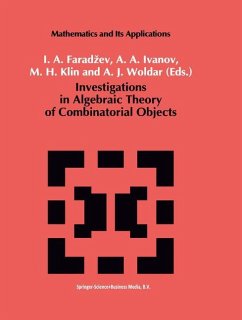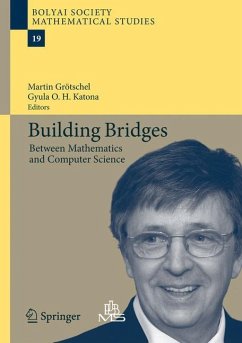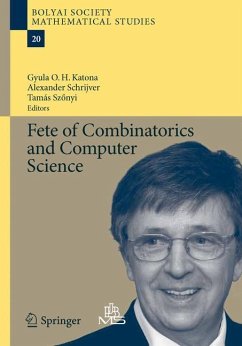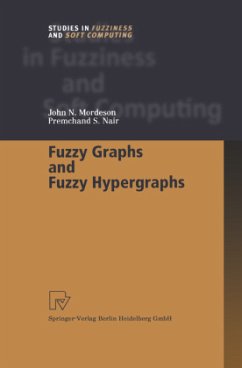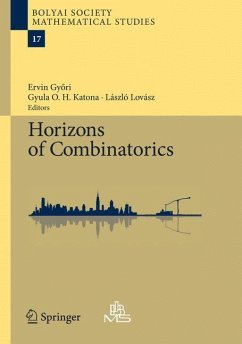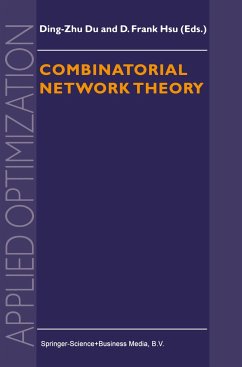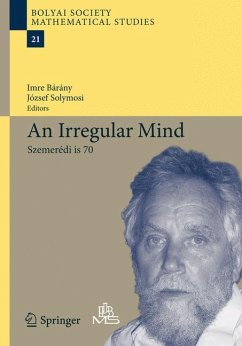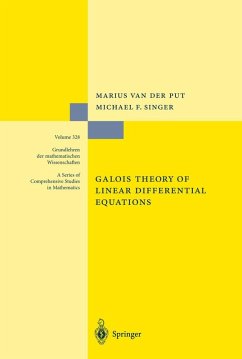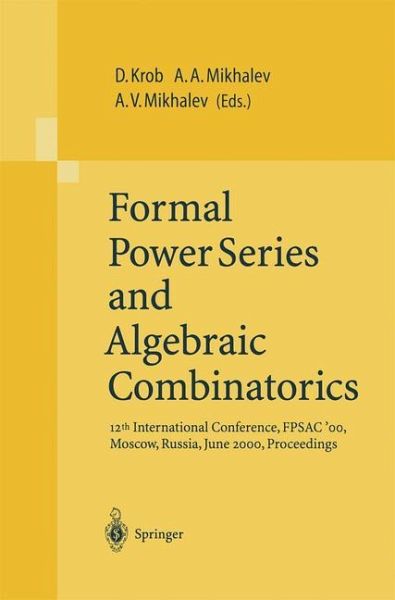
Formal Power Series and Algebraic Combinatorics
12th International Conference, FPSAC'00, Moscow, Russia, June 2000, Proceedings
Herausgegeben: Krob, Daniel; Mikhalev, Alexander A.; Mikhalev, Alexander V.
Versandkostenfrei!
Versandfertig in 6-10 Tagen
228,99 €
inkl. MwSt.

PAYBACK Punkte
114 °P sammeln!
SFCA/FPSAC (Series Formelles et Combinatoire Algebrique/Formal Power Se ries and Algebraic Combinatorics) is a series of international conferences that are held annually since 1988, alternating between Europe and North America. They usually take place at the end of the academic year, between June and July depending on the local organizing constraints. SFCA/FPSAC has now become one of the most important annual inter national meetings for the algebraic and bijective combinatorics community. The conference is indeed one of the key international exchange place of ideas between all researchers invo...
SFCA/FPSAC (Series Formelles et Combinatoire Algebrique/Formal Power Se ries and Algebraic Combinatorics) is a series of international conferences that are held annually since 1988, alternating between Europe and North America. They usually take place at the end of the academic year, between June and July depending on the local organizing constraints. SFCA/FPSAC has now become one of the most important annual inter national meetings for the algebraic and bijective combinatorics community. The conference is indeed one of the key international exchange place of ideas between all researchers involved in this emerging exciting area. SFCA/FPSAC'OO is the 12th in the series. It will take place in Moscow (Russia) from June 26 to June 30, 2000. Previous SFCA/FPSAC conferences were organized in Lille (88), Paris (90), Bordeaux (91), Montreal (92), Florence (93), Rutgers (94), Marne-la-Vallee (95), Minneapolis (96), Vienna (97), Toronto (98) and Barcelona (99). SFCA/FPSAC'OO is co-organized by the Center of New Information Tech nologies (CNIT) of Moscow State University, the Laboratoire d'Informatique AI gorithmique : Fondements et Applications (LIAFA) of University Paris 7 and the Maison de l'Informatique et des Mathematiques Discretes (MIMD). The SFCA/FPSAC'OO conference covers all main areas of algebraic combi natorics and bijective combinatorics (including asymptotic analysis, all sorts of enumeration, representation theory of classical groups and classical Lie algebras, symmetric functions, etc). A special stress was also put this year on combinato rial and computer algebra.






